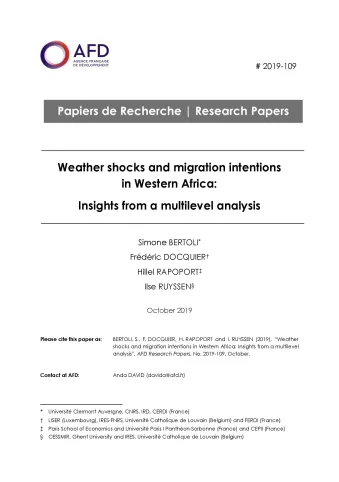Share the page
Weather shocks and migration intentions in Western Africa: Insights from a multilevel analysis
Published on

We use a multilevel approach to characterize the relationship between weather shocks and (internal and international) migration intentions. We combine individual survey data on migration intentions with measures of localized weather shocks for Western African countries over 2008-2016. A meta-analysis on results from about 310,000 regressions is conducted to identify the specification of weather anomalies that maximizes the goodness of fit of our empirical model. We then use this best specification to document heterogeneous mobility responses to weather shocks, which can be due to differences in long-term climate conditions, migration perceptions, or adaptation capabilities. We find that droughts are associated with a higher probability of migration intentions in Senegal, Niger and Ivory Coast. The effect on international migration intentions are only significant in Niger. These effects are amplified, but qualitatively similar, when restricting the sample to rural low-skilled respondents.
Useful Information
-
Authors
-
Simone BERTOLI, Frédéric DOCQUIER, Hillel RAPOPORT, Ilse RUYSSEN
-
Coordinators
-
Edition
-
109
-
Number of pages
-
30
-
ISSN
-
2492 - 2846
-
Collection
-
Research Papers
